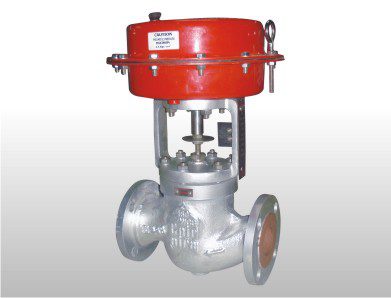Introduction
In the world of industrial processes, where precision and control are paramount, the choice of control valves plays a crucial role in determining the overall efficiency and effectiveness of operations. Diaphragm control valves have emerged as powerful tools that provide unmatched control and reliability in various applications. This article delves into the inner workings of diaphragm control valves and explores how they unleash efficiency in diverse industries.
Understanding Diaphragm Control Valves
A diaphragm control valve is a type of throttling valve that utilizes a flexible diaphragm to regulate the flow of fluids or gases. The diaphragm is a thin, flexible membrane that separates the valve body from the internal components. This design allows for precise control over the flow rate by varying the position of the diaphragm in response to changes in pressure.
Advantages of Diaphragm Control Valves
Precise Control
Diaphragm control valves offer exceptional precision in regulating flow rates. The flexible diaphragm allows for fine adjustments, making these valves suitable for applications where accurate control is essential, such as in the chemical and pharmaceutical industries.
Versatility
The valves are versatile and can handle corrosive and abrasive fluids. The diaphragm serves as a barrier, preventing the process fluid from coming into direct contact with the valve body, and ensuring compatibility with various substances.
Reliability
The simplicity of the design contributes to the reliability of diaphragm control valves. With fewer moving parts and a robust diaphragm, these valves are less prone to wear and tear, resulting in longer service life and reduced maintenance costs.
Leakage Prevention
Diaphragm control valves are well-suited for applications where leakage is a concern. The diaphragm effectively seals the flow path, minimizing the risk of leaks and ensuring the system's integrity.
Applications of Diaphragm Control Valves:
Chemical Processing
Diaphragm control valves are commonly used in the chemical industry for handling corrosive and aggressive chemicals. Their ability to provide precise control and resist corrosion makes them essential for ensuring the safety and efficiency of chemical processes.
Pharmaceutical Manufacturing
In pharmaceutical manufacturing, where accuracy and sterility are critical, diaphragm control valves play a vital role. These valves help maintain the precise conditions required for pharmaceutical production, contributing to product quality and compliance with regulatory standards.
Water Treatment
Diaphragm control valves find applications in water treatment plants for regulating the flow of water and various chemicals. Their resistance to corrosion makes them well-suited for handling the diverse and often aggressive substances encountered in water treatment processes.
Oil and Gas Industry
In the oil and gas sector, diaphragm control valves control the flow of fluids and gases in pipelines and processing facilities. Their reliability and resistance to harsh environmental conditions make them valuable in this demanding industry.
Conclusion
Efficiency in industrial processes is a continuous pursuit, and the choice of control valves significantly influences the outcome. Diaphragm control valves, with their precision, versatility, reliability, and leakage prevention features, have become indispensable in various industries. As technology continues to advance, these valves are likely to play an even more prominent role in enhancing efficiency and ensuring the smooth operation of critical processes.


No comments yet